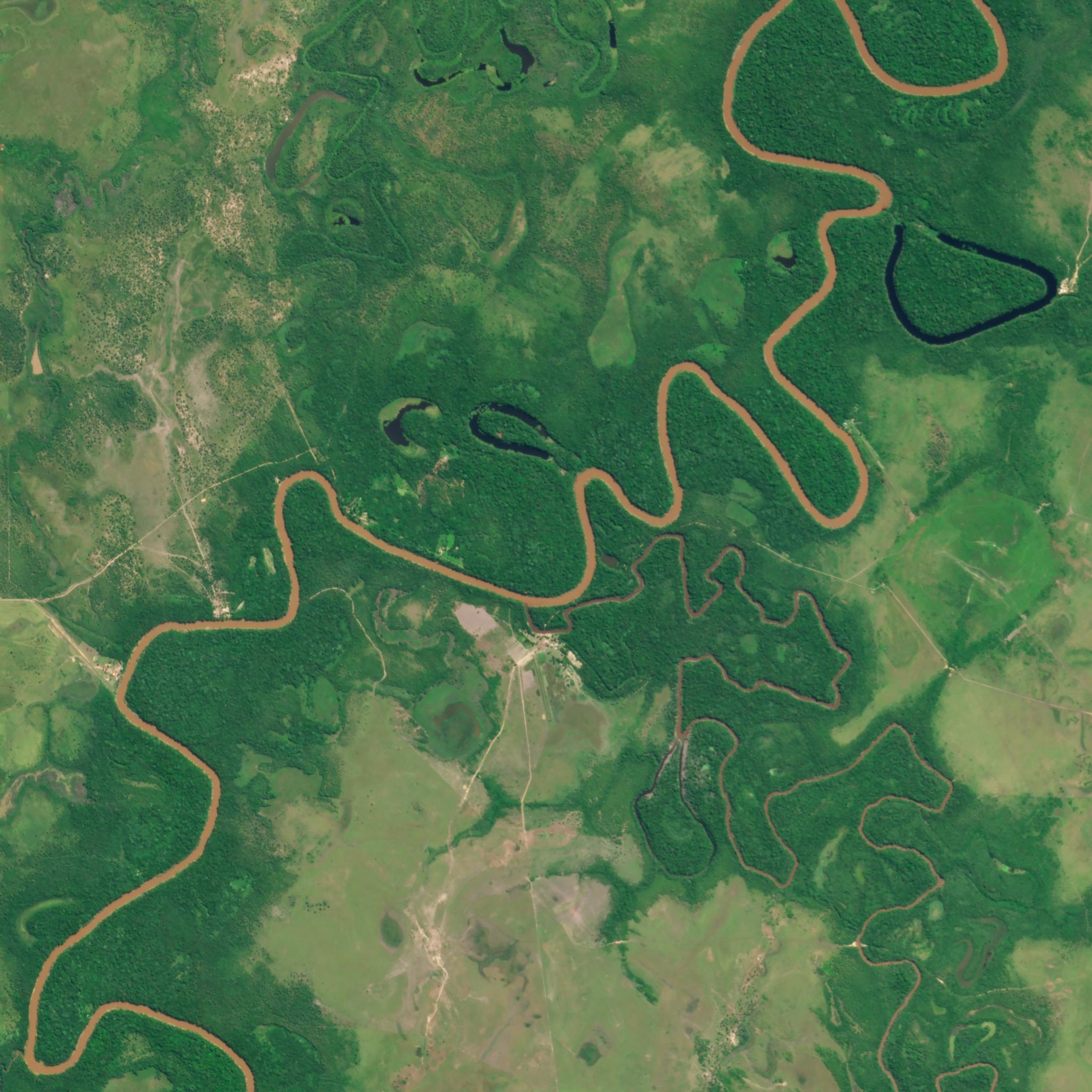How Bolivia Navigates Carbon Finance with Satellite Precision

PlanetScope image of a forest ecosystem in Bolivia. © 2024, Planet Labs PBC. All Rights Reserved.
StoriesCarbon Finance in Latin America: A Natural Fit
With Latin America's vast forested regions well-positioned to generate carbon offsets, it's no surprise that navigating carbon finance can spark a lively discussion across the region. On a Planet carbon finance panel, hosted in Colombia, leaders from Planet, INRA (Bolivia’s National Institute of Agrarian Reform), and Planet partner CIVIS shared how Planet’s high-impact technology meets Bolivia’s unique needs while providing the transparency and compliance required for emerging finance mechanisms like Emission Reductions Payment Agreements (ERPA).
Bolivia’s Land Management: A Shift in Focus Supports Carbon Finance
Juan de Dios Fernández, General Director of Planning at INRA, provided insights to Bolivia’s commitment to sustainable forest management.
"We have a new constitution that declares the Earth as our mother—Mother Earth,” he explained. “In addition, we have a law that grants rights to Mother Earth. We must respect these rights, meaning that any development must not harm future generations. Whatever we do must ensure the sustainability of existing natural systems."
The constitutional dedication to sustainability drives INRA’s approach to land management. Protecting Bolivia’s forests not only safeguards the environment but also ensures food sovereignty by maintaining the land’s ability to support the country’s people. "We have to make sure that the land is sustainable. And that's where it all begins,” Fernández said.
With those mandates in mind, INRA uses satellite data from Planet to monitor forest trends in near real-time. This technology allows the government to act swiftly on violations and provides the transparency needed to meet international carbon credit standards.
Innovators Across Latin America Build on Each Others’ Success
Monitoring the vast forests of Latin America with traditional methods is a daunting task. Today, technology-driven solutions like Planet satellite imagery are replacing labor-intensive processes. Continual monitoring enables quicker change detection and faster interventions.
Fernández expressed that he knew Planet was the answer when learning about our collaborations with governments in Latin America. “We said, ‘This is what we need - a system that detects changes, generates alerts, and notifies the responsible institutions to verify and act.’”
Defining Property Rights Across the Nation
Before addressing forest violations, it's crucial to know who owns the land. INRA and CIVIS started using Planet’s satellite data in their efforts to establish property rights and ensure accurate land titling across Bolivia.
Fernández described this effort as an issue of justice and inclusion. By clarifying land ownership, Bolivia unlocks opportunities for communities to earn and trade carbon credits. This foundational step strengthens Bolivia’s position in global carbon finance while promoting accountability and sustainable development.
As Bolivia continues to refine its land management strategies, land titling remains a cornerstone of the country’s efforts to navigate the complexities of carbon markets. This critical step not only promotes accountability but also strengthens Bolivia’s position in global carbon finance.
Plot-by-Plot Monitoring for Forest Loss or Degradation
In the discussion, CIVIS President Alfredo Aramayo also shared how Planet’s Forest Carbon Monitoring data enables detailed tracking of forest health.
"Now we are working plot by plot,” Aramayo said. CIVIS applies artificial intelligence to detect deforestation and forest degeneration. Planet's Forest Carbon Monitoring provides unprecedented granularity, with a resolution of 3 meters per pixel. That means monitoring changes at the individual tree level, capturing more complete patterns of forest change over time.
Key features including Canopy Cover, Canopy Height, and Aboveground Live Carbon measurements provide a comprehensive view of forest health. This granular, scientifically rigorous approach helps keep Bolivia's carbon finance reporting reliable, strengthening the nation's position in the voluntary carbon market.
Data to Support Trust in Carbon Market Certification
During the panel, an audience member asked whether government standards regulate the tools INRA uses for monitoring. This question cuts to the heart of the carbon finance challenge: ensuring that the carbon market recognizes and trusts the data used to track emissions and deforestation.
Dr. Flávia De Souza Mendes, Planet's Program Manager for Forests and Land Use, explained that since the voluntary carbon market is still evolving, there is no universally regulated certification for satellite-based monitoring tools. Currently, carbon certifiers have different methodologies that project developers must follow if they want to be certified.
That said, Planet uses the highest quality data available, leveraging PlanetScope imagery and data from public missions alongside a reference library of airborne and spaceborne LiDAR data for training and validating the dataset. Planet follows rigorous scientific methodologies and offers transparency to help users validate the credibility of the data.
A Vision for the Future of Carbon Finance
While carbon finance continues to evolve, detailed and transparent carbon accounting is essential for navigating these markets effectively.
INRA and CIVIS are setting a standard for carbon finance compliance and innovation in Latin America. A high-tech combination of satellite data and artificial intelligence has helped them meet the complex requirements of carbon credit systems while demonstrating how sustainable development and climate action can coexist.
With satellite data and AI technologies becoming more widely used, more countries will be able to build efficient and scientifically sound forest monitoring systems.
A partnership approach between government agencies like INRA, local partners like CIVIS, and technology providers like Planet is the key to leveraging global innovations to tailor solutions to local needs.

Ready to Get Started
Connect with a member of our Sales team. We'll help you find the right products and pricing for your needs.

